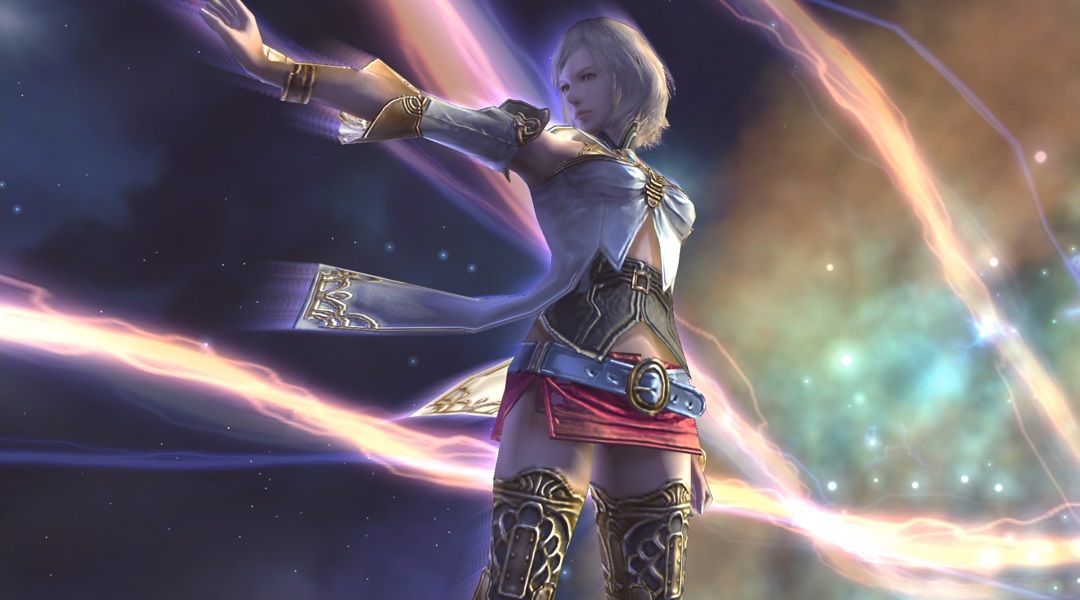
Final Fantasy 12 Remaster: An Important History Lesson
By Cody Gravelle 13 November 2016
Square Enix is gearing up for a remastered release of a PS2 classic in Final Fantasy 12: The Zodiac Age, and the PS4 version holds up as an important landmark in JRPG history.
The release line-up of Final Fantasy titles spanning the latter half of 2016 and into 2017 is one of the strongest from Square Enix in recent memory. World of Final Fantasy challenged the way gamers perceived kid-friendly gaming by offering up nuanced combat with a hearty serving of nostalgia, shattering expectations for a title many felt was a waste of the developer’s time. Final Fantasy 15, for all of the hype that has made for one of the most anticipated games of the 2016 holiday season, actually looks like it will live up to most of the hyperbole surrounding it.
The excitement surrounding those two games, however, might have dulled the glimmer of Final Fantasy 12: The Zodiac Age slightly. Amidst two brand new takes on what Final Fantasy games can look like, Final Fantasy 12: The Zodiac Age is a throwback to a time period where the franchise was standing on perilous ground due to a stubborn refusal to adapt to modern gaming. Released just six months before Sony debuted the PS3, Final Fantasy 12 was a game that struggled to gain traction in a console market that was about to undergo a dramatic change, and despite extremely positive reviews, the title met a lot of criticism for its action/turn-based hybrid combat system.
That leaves the HD remake of Final Fantasy 12 in a strange position. As the Final Fantasy series pushes forward with the fluid, often incredible combat of Final Fantasy 15, what element of Final Fantasy 12: The Zodiac Age will convince gamers to take a second look at arguably one of the most under-rated Final Fantasy titles of all time? We recently went hands-on with a 20-minute demo of Final Fantasy 12: The Zodiac Age, and we think we’ve found the answer – Final Fantasy 12: The Zodiac Age is one of the most important history lessons in JRPG history, and it’s a fun one at that.
To be clear, Final Fantasy 12: The Zodiac Age isn’t revolutionary by any means. Its graphics have improved significantly since we last saw it on a PS2, but that’s to be expected, and merely makes the game playable on high-resolution televisions without feeling as though a player has just stepped out of a time machine. Where Final Fantasy 12: The Zodiac Age shines is in its unintentional positioning as a celebration of what came before the newest, more innovative, Final Fantasy titles released this year.

Nowhere is that more clear than in Final Fantasy 12: The Zodiac Age‘s once-controversial combat system. In playing through it, fans of the series will notice the subtle influences it had over the future direction of the series, whether it be the targeting of Final Fantasy 13 or the open-world, enemies-in-bunches aesthetic that has made Final Fantasy 15 so gorgeous to look at. The combat is a little bit dated now, and it handles awkwardly in juxtaposition with newer action RPG titles, but it’s a historical landmark for the Final Fantasy series and it has a lot of value in that sense.
The remastered title isn’t likely to win over a bunch of new fans, but that’s what World of Final Fantasy was for – instead, Zodiac Age is a look at the past through a high-definition lens and a view of the foundation that made games like Final Fantasy 15 possible. Perhaps most importantly, however, in our limited experience with the game so far, Final Fantasy 12: The Zodiac Age is a fun and engaging look back at the tipping point in gaming history that saw JRPG titles finally begin to make the transition toward modern gaming.
Final Fantasy 12: The Zodiac Age will be available on the PS4 sometime in 2017.
